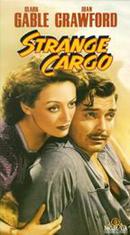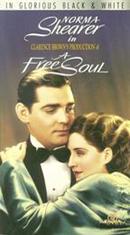If you are searching for out-of-the-ordinary Christmas gifts, I will recommend a half-dozen. Of course, you should understand that I am an old-fashioned person and that affects my choices. The following films, all black and white, were made during the 1930s and 1940s, prior to the period when Hollywood began subjecting us to movies addressing social issues.
You may not be familiar with some of these films and you are not likely to find them on listings of the 100 best movies. In fact, I will admit that they could be called escapist fare, perhaps a little too contrived in some cases. But for those times when you simply want to relax and be entertained, and also “remember how things used to be," these films should satisfy you.
I have only picked films that can still be purchased in case you decide you want to acquire one. And there is no reason why you can’t give one to yourself for Christmas. After all, it is the season for giving. And these films would be great fun to watch during the holidays.
So below, in no particular order, are my recommendations.
 Mask of Dimitrios (1944)
Mask of Dimitrios (1944)
A classic film noir. This story of espionage and intrigue set in Europe in the 1930s, is one of the first films featuring the Austin actor, Zachary Scott, who gives an outstanding performance as Dimitrios Makropolis, a charming but ruthless international spy who would turn against anyone for financial gain. (The screen play is based on the Eric Ambler novel A Coffin for Dimitrios.) A Dutch mystery writer, Cornelius Leyden (Peter Lorre, in an atypical performance) becomes intrigued with stories about the exploits of Dimitrios whom he believes to be dead. As Leyden travels throughout Europe to learn more about the life of Dimitrios, he is followed by a Mr. Peters (Sydney Greenstreet). Finally, Peters approaches Leyden, convinces him that Dimitrios is alive and suggests a plan to blackmail the elusive spy. Peters convinces Leyden that Dimitrios will pay a million French francs to maintain his anonymity. The film moves through locations such as Sophia, Istanbul, Geneva, Belgrade, Paris and Athens. Also in the cast are Faye Emerson, Victor Francen and Steven Geray.
 Strange Cargo (1940)
Strange Cargo (1940)
The theme of this film is often described as “religious” but I think a more accurate description would be “religious mysticism”; not a subject that normally interests Hollywood. But screen writers were able to concoct a suspenseful story to keep the film moving. (Based on the novel Not Too Narrow…Not Too Deep by Richard Sale.) The plot turns on a group of hardened convicts determined to escape from the supposedly escape-proof French Guiana penal colony, Devil’s Island. Verne (Clark Gable) passes the time by reading the Bible; not for spiritual inspiration, but to find inconsistencies and contradictions to help justify his cynicism about life. Verne also shows an interest in Julie (Joan Crawford), a singer with a shady past who is performing at a nightclub across from the prison compound. (Crawford turns in a non-typical performance, avoiding her usual Hollywoodisms.) The catalyst in the film is a man named Cambreau (Ian Hunter) who mysteriously appears at the prison one day. Movie reviewers usually describe Cambreau as “Christ-like” and his insightful comments and scriptural quotations do have a profound effect on all he comes into contact with. Other cast members include Paul Lukas, Albert Dekker and Peter Lorre.
(Trivia: When this film was released, the Legion of Decency condemned it for “irreverent use of scripture” but such a condemnation is hard to understand today.)
 Young and Innocent (1937)
Young and Innocent (1937)
This early and underrated Hitchcock film follows Hitchcock’s usual plot line. A young man, Robert (Derrick De Marney), is accused of a murder he didn’t commit and must prove his innocence as he flees authorities. Naturally he is aided by a beautiful girl, Erica (Nova Pilbeam), who happens to be the Chief Constable’s daughter. The film is based on a story by the great mystery writer, Josephine Tey. (Many of you will recall her book The Daughter of Time which examines the crimes charged against Richard III and finds him innocent.) All the signature Hitchcock touches are included in this little 80-minute film; suspense, humor and romance. Not too far into the film you will see Hitchcock himself wearing a cloth cap and holding a camera like a tourist. You will also see England before World War II; a simpler time with country roads, staid English families and automobiles that must be started with hand cranks. Nova Pilbeam, who had appeared on the stage as a child, would become one of Britain’s finest film actresses. The cast also includes the famous character actor, Edward Rigby as Old Will.
(Trivia: In the final scene, members of a hotel orchestra are in minstrel-style black face, a depiction that current film directors would certainly avoid.)
 Son of Fury (1942)
Son of Fury (1942)
A swashbuckling costume drama and exciting old-fashioned adventure tale set in England during the reign of George III, based on Edison Marshall’s novel Benjamin Blake. Benjamin is the orphaned nephew of Sir Arthur Blake (played by the ubiquitous George Sanders), wealthy master of the Brethen estate. However, if “Ben” could prove the legitimacy of his birth, he would be the lawful heir to Brethen, a fact that Sir Arthur recognizes only too well. So Sir Arthur makes Ben a lowly stable boy at Brethen in order to keep an eye on him. When he grows to manhood, Ben (Tyrone Power, at his dashing and romantic best) makes the mistake of becoming romantically involved with Sir Arthur’s beautiful daughter, Isabel (the lovely Frances Farmer). Sir Arthur’s wrath is incurred and after Ben makes an illegal threat against Sir Arthur, he is forced to flee the country. Ben eventually seeks refuge on a remote Polynesian island where he settles into a tranquil life with an exotic native girl he calls Eve (Gene Tierney). Still, after amassing a wealth of pearls, Ben determines to surreptitiously return to England and pursue his claim as the legal heir to Brethen. The cast also includes, John Carradine, Roddy McDowall, Elsa Lanchester and Harry Davenport.
(Trivia: Some time after this film was made, Frances Farmer was tragically committed to a mental institution against her will and, in time, subjected to invasive psychosurgeries that have since been discredited. Questions still persist as to the appropriateness and legality of her commitment.)
 A Free Soul (1931)
A Free Soul (1931)
This film is loosely based on Adela Rogers St. Johns life with her notorious alcoholic father, Earl Rogers, a prominent San Francisco attorney. In this version, the alcoholic attorney, Stephen Ashe (Lionel Barrymore) has allowed his daughter, Jan (Norma Shearer) to flout convention and pursue a controversial lifestyle. When Ashe defends Ace Wilfong (Clark Gable), a local gangster charged with murder, Jan, ever the non-conformist, gets involved with Wilfong, abandoning her, almost too noble, fiancée, Dwight Winthrop (Leslie Howard). When the gangster tells Ashe that he wants to marry his daughter, Ashe’s liberalism comes crashing down. His daughter’s ultramodern lifestyle could be tolerated but marriage to a hoodlum is too much. Ashe finally convinces Jan to break off with Wilfong but the passionate Wilfong refuses to take no for an answer. Ultimately a tragedy occurs. Lionel Barrymore won an Academy Award for his performance in this film.
 Trivia: To get Wilfong acquitted of the murder charge, Ashe contrives to have the strongest piece of evidence, Wilfong’s hat — he lost his hat while fleeing the murder scene — replaced with an identical but smaller hat. In the courtroom, Ashe has Wilfong don the smaller hat which looks so ridiculous on his head that the jury is unable to control their laughter. A vote for acquittal is assured. (If the hat doesn’t fit, you must acquit. Hmmmm. Sounds familiar.)
Trivia: To get Wilfong acquitted of the murder charge, Ashe contrives to have the strongest piece of evidence, Wilfong’s hat — he lost his hat while fleeing the murder scene — replaced with an identical but smaller hat. In the courtroom, Ashe has Wilfong don the smaller hat which looks so ridiculous on his head that the jury is unable to control their laughter. A vote for acquittal is assured. (If the hat doesn’t fit, you must acquit. Hmmmm. Sounds familiar.)
White Cargo (1942)



